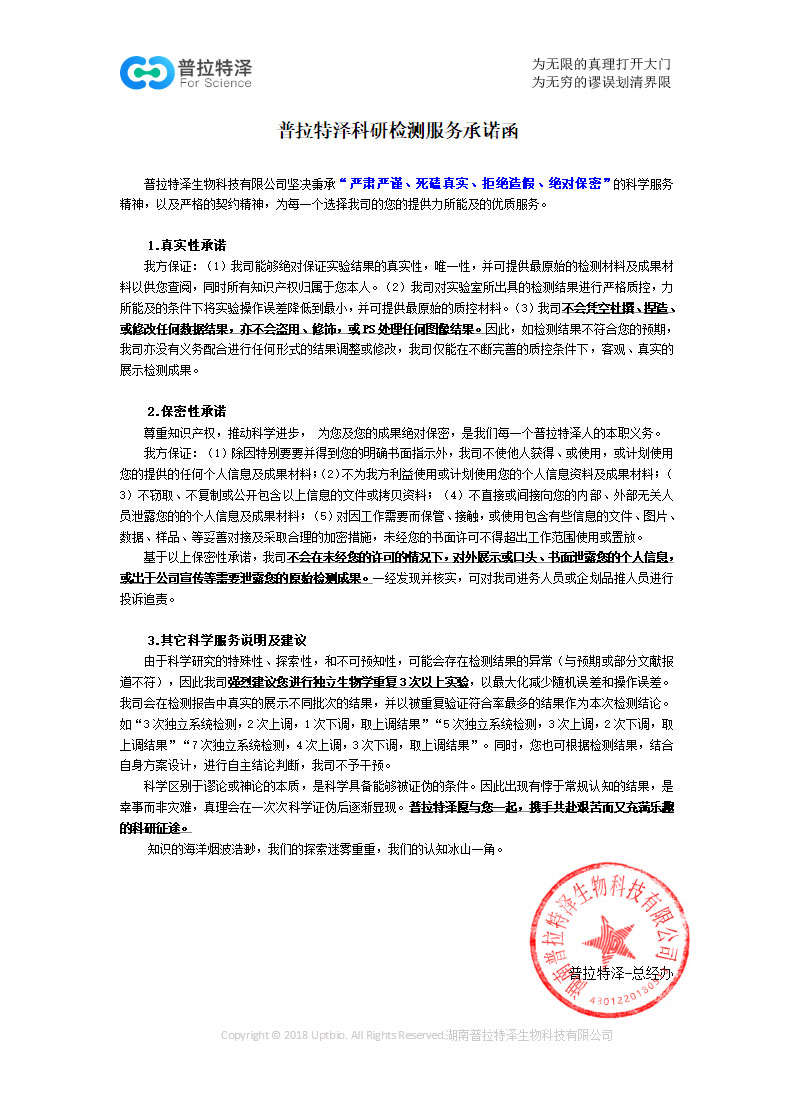Hunan UPT Biotechnology Co.,Ltd
Website:www.uptbio.com Servive hotline :4006916686
E-mail:service@uptbio.com
Address:
Room 402, Building 13, Xinggong International Industrial Park, 100 Guyuan Road,
Yuelu District, Changsha City, Hunan Province, China.




